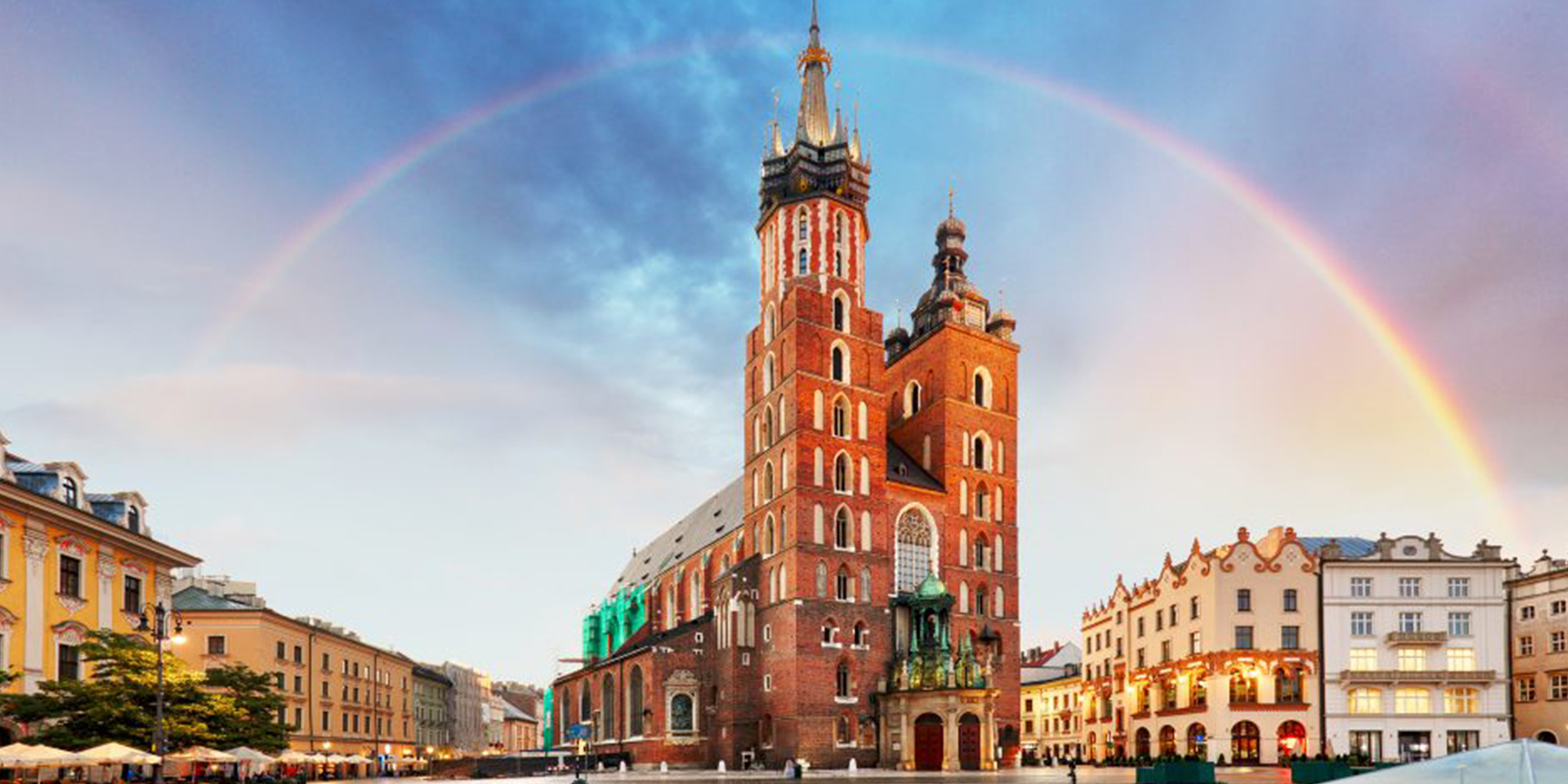EIT Climate-KIC supports Krakow in its path towards climate neutrality

Poland’s former capital and one of its oldest cities, Krakow, is embarking on a transformative journey towards decarbonisation with the support of EIT Climate-KIC.
The city is taking part in EIT Climate-KIC’s Deep Demonstration of Healthy, Clean Cities, and has set ambitious goals to become carbon neutral and inclusive. The past year has seen a breakthrough in the city council’s approach from siloed to systems thinking, leading to a series of experiments developed to bring the city closer to carbon neutrality.
In Poland, most energy is still derived from coal, which plays an important role in heating homes but results in high levels of air pollution. The residents of Krakow were the first in Poland to realise that a massive improvement in air quality was needed, as air pollution levels were far above World Health Organisation recommendations. A joint effort by residents and local authorities led to the creation of the Clean Air Programme, resulting in a ban on burning coal and wood in homes from September 2019.
Towards a holistic, city-wide plan
The Clean Air Programme has given Krakow an appetite for greater change. In 2019, EIT Climate-KIC brought together a diverse group of local stakeholders, led by Andrzej Łazęcki, Deputy Director of Municipal Services Department and an engineer with over 30 years of experience. The group also included officials such as Andrzej Kulig, the First Deputy Mayor.
The common goal of EIT Climate-KIC and the city of Krakow was to expand the city’s existing initiatives, link them together and fill strategic gaps to build a portfolio of experiments. They started with a series of meetings and workshops on systems thinking, policy innovation, and much more.
This process was born out of the idea that it is crucial to have a long-term vision for reducing greenhouse gas emissions in order to be convinced that our actions are aimed at making a greater impact on the climate situation. Participation in this process is of strategic importance to us. When we joined Deep Demonstrations two years ago, we had high expectations for this programme and the opportunities that were presented to us exceeded our expectations.
Andrzej Łazęcki, engineer and Deputy Director of the Municipal Services Department.
Economic models as a lens for the city’s capabilities
One of the first steps Krakow took was to build a business case for decarbonisation, using the scenario analysis model offered by EIT Climate-KIC partner Material Economics. The local team worked closely together to collect and analyse data to identify the most effective ways to achieve environmental impact in a financially and socially sustainable way at a city-wide level. The analysis revealed that Krakow emits an estimated 5.5 million tons of carbon dioxide each year from transport, buildings, heating, and electricity.
Multi-level experiments to scale up the potential for change
The emerging portfolio of experiments aims to enable rapid learning and create the opportunity to scale the actions that will enable Krakow to achieve its net-zero target by 2030.
The portfolio is characterised by themes that reflect critical ingredients for developing new transformation pathways for the city. These themes, which derive directly from the city’s barriers and challenges, include citizen engagement, clearer and more holistic approaches to internal municipal governance and organisation, accelerating action in response to COVID-19, and a positive decarbonisation narrative for future scaling and support. Krakow has also set a goal to increase the amount of green space in the city. The city government will take a leading role in developing and implementing the portfolio of experiments.
Action is needed to strengthen the local community. Talking about a global problem is not very convincing, it is crucial to bring the problem down to the local level, to issues that residents can engage with.
Andrzej Łazęcki, engineer and Deputy Director of the Municipal Services Department.
Engaging citizens in experimentation
Another example of experimentation in Krakow focuses on mobility and supports a city-wide shift to public transport, walking, and cycling. The idea of developing a Climate Quarter within Krakow’s second ring road in the city centre could offer the potential for decarbonising mobility. Behavioural changes due to the COVID-19 pandemic in 2020 and the focus on cycling as part of the national recovery plan also offer the opportunity to accelerate this change. The Climate Quarter and improved cross-district bike routes will serve as a testing ground for this experiment.
This could be a green turnaround for the whole city. Awareness of the climate crisis has grown tremendously in the last two years, both among residents and city officials. We have recognised this gap and are ready for far-reaching changes.
Andrzej Łazęcki, engineer and Deputy Director of the Municipal Services Department.


 Share this page
Share this page


